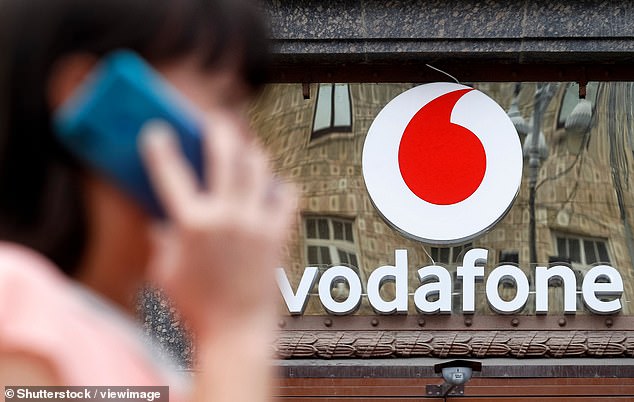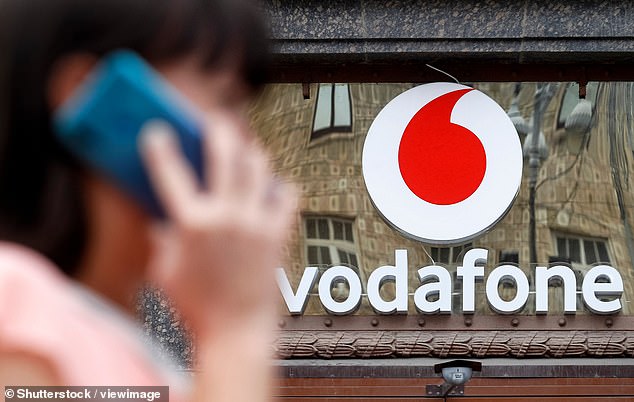Table of Contents
The UK’s biggest mobile operator will be formed next year as the competition regulator cleared the £15bn merger of Three UK and Vodafone.
The Competition and Markets Authority said the deal between Three and Vodafone can go ahead in 2025 if the two companies spend billions on investments in 5G infrastructure.
The merger would also cap the price of some mobile offerings for three years, a distinct advantage in a mobile landscape that has seen huge bill increases year after year.
It would bring together 27 million customers under one roof and was first proposed in 2023.
But experts are divided over whether the deal would drive prices up or down, and what it would mean for mobile competition in the UK.
Here’s everything you need to know about how the merger would affect you.
Big deal: Vodafone and Three merger creates one of the world’s largest mobile companies
Will Three and Vodafone still exist?
Yes, as separate brands. If you are a customer of either company, no changes have been announced to how your mobile contract works.
After three years, Vodafone will be allowed to buy the rest of Three, which is currently owned by CK Hutchison Group Telecom Holdings.
Is the deal safe?
Not yet, as the CMA has certain requirements it wants companies to meet first.
These include Three and Vodafone investing billions in 5G infrastructure over eight years and capping the price of certain deals for three years. If the companies don’t do it, then the deal is off.
Stuart McIntosh, chair of the research group leading the CMA investigation, said: “It is crucial that this merger does not harm competition, which is why we have spent time considering how it could affect the telecommunications market.”
“Having carefully considered the evidence, as well as the extensive feedback we have received, we believe that the merger is likely to boost competition in the UK mobile sector and should be allowed to proceed, but only if Vodafone and Three agree to implement the proposed measures.” . .’
What offers will have limited prices?
This has not yet been announced and details will be published in a further CMA report.
The CMA has not defined which specific pricing plans would be protected. It is understood that this detail will be in a full report on the merger, which has not yet been published.
When will the deal be completed?
In the first half of 2025.
What are the benefits of the merger?
The CMA believes that more widespread 5G services could be an advantage of the Vodafone/Tres merger.
This is because the combined scale of the merger could “improve the quality of mobile services and introduce next-generation 5G networks and services”, the CMA said.
But some experts believe the merger could mean higher prices.
The CMA initially thought the merger could mean higher bills for customers, before changing its mind.
Rocío Concha, which one? policy and promotion director, said: “The two companies are currently close competitors, so the merger is likely to reduce competitive pressure in the market, which could lead to higher prices and lower quality for consumers, “at least in the short term.”
However, the prospect of higher prices was rejected by Vodafone chief executive Margherita Della Valle.
She told the BBC Today program that the deal would mean “no additional public funding costs and no additional costs for our customers”.
How many mobile operators are left?
Once the deal closes, there will be just four mobile network operators in the UK: Vodafone UK, Three UK, BTEE and Virgin Media O2.
A mobile operator owns and operates a network that allows mobile phones to communicate.
Many other companies rent part of this network to provide their own services, such as Giffgaff, Tesco Mobile, Smarty and more. These companies are called ‘mobile virtual network operators’ (MVNOs) and there are 18 of them, seven of which use the services of Vodafone and Three.
What happens if my mobile phone company works on the Vodafone/Three network?
Seven mobile phone companies are MVNOs that use Vodafone or Three networks.
These are Asda Mobile, iD Mobile, Lebara, Smarty, Superdrug Mobile, Talkmobile and Voxi.
Customers of these companies should see no price increases for three years, at least not merger-related price increases.
This is because the CMA has said these companies will be locked out of prices and contract terms for three years as part of the merger agreement.
SAVE MONEY, MAKE MONEY

1% refund

1% refund
About debit card expenses. Maximum £15 per month*

Energy bills

Energy bills
Find out if you could save with a fixed rate

free share offer

free share offer
No account fee and free stock trading

4.5% Isa 1 year

4.5% Isa 1 year
Hampshire confident of Hargreaves Lansdown

Sip Rate Offer

Sip Rate Offer
Get six months free on a Sipp
Affiliate links: If you purchase a This is Money product you may earn a commission. These offers are chosen by our editorial team as we think they are worth highlighting. This does not affect our editorial independence. *Chase: Refund available during the first year. Exceptions apply. Over 18 years of age, resident in the United Kingdom.
Some links in this article may be affiliate links. If you click on them, we may earn a small commission. That helps us fund This Is Money and keep it free to use. We do not write articles to promote products. We do not allow any commercial relationship to affect our editorial independence.


